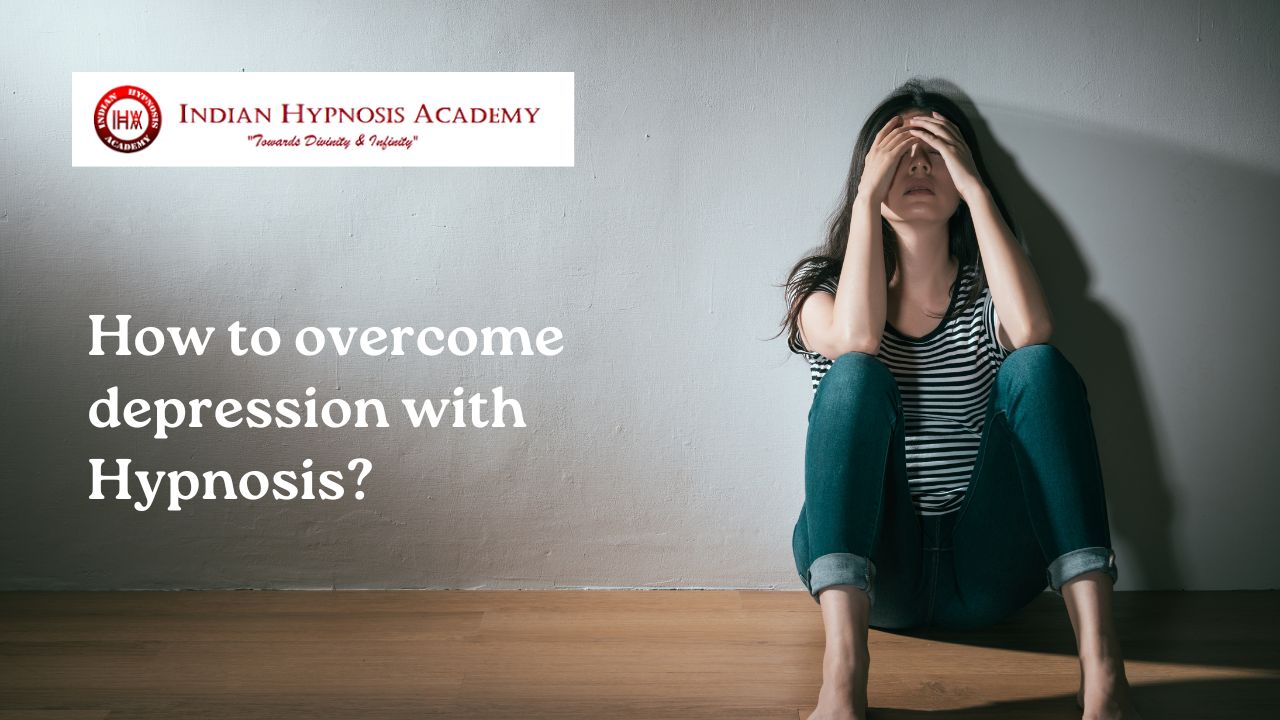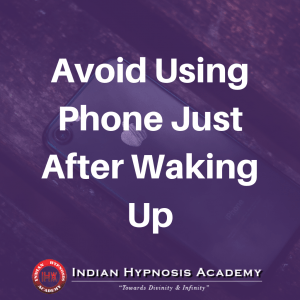Feeling like a dark cloud is following you around, making it hard to find joy in the everyday? You’re not alone. Depression can cast a shadow over every aspect of life, leaving you feeling drained and hopeless. But what if there was a way to break free from its grip and rediscover the light within? Enter hypnosis – a powerful tool that has been gaining recognition for its ability to help individuals overcome depression and reclaim their mental well-being. Join us as we delve into how hypnosis can be the key to unlocking a brighter tomorrow.
Understanding Depression and its Effects
Depression is more than just feeling sad or blue; it’s a complex mental health condition that can impact every aspect of life. It goes beyond temporary feelings of sadness and can linger for weeks, months, or even years. The effects of depression are far-reaching, affecting not only your mood but also your energy levels, motivation, and overall outlook on life.
Individuals struggling with depression may experience a range of symptoms such as persistent feelings of emptiness, loss of interest in activities they once enjoyed, changes in appetite or sleep patterns, and difficulty concentrating. These symptoms can make it challenging to function normally in daily life and maintain healthy relationships.
Understanding the nuances of depression is crucial in order to seek proper treatment and support. It’s important to remember that depression is not a sign of weakness but rather a medical condition that requires attention and care to overcome its debilitating effects.
What is Hypnosis?
Have you ever wondered what hypnosis really is? It’s not like the theatrical performances you might have seen – it’s a therapeutic technique used to access the subconscious mind. Hypnosis involves inducing a state of deep relaxation where your mind becomes more open to suggestion.
During hypnosis, the conscious mind takes a step back, allowing the hypnotist to communicate directly with the subconscious. This can help address negative thought patterns, behaviors, and emotions that are contributing to depression.
Hypnosis is all about harnessing the power of your own mind to make positive changes. By accessing your subconscious thoughts and beliefs, hypnotherapy can help reframe negative thinking patterns and promote feelings of empowerment and positivity.
Hypnosis is a valuable tool in overcoming depression by tapping into the deeper layers of your mind for healing and transformation.
The Connection Between Hypnosis and Depression
Picture this: your mind is like a garden, filled with both beautiful flowers and stubborn weeds. In the case of depression, those weeds seem to have taken over, suffocating the vibrant blooms. Hypnosis acts as a gentle gardener, helping you identify and uproot those negative thought patterns that have grown out of control.
Through hypnosis, you can access your subconscious mind where these deep-rooted issues reside. By rewiring these thought processes, hypnosis can pave the way for new seeds of positivity to take root and flourish in your mental landscape.
It’s not about magically erasing all feelings of sadness or despair; rather, it’s about empowering you to regain control over your emotions and responses to triggers. Hypnosis serves as a tool to help break free from the cycle of negative thinking that perpetuates depression.
By establishing a connection between hypnosis and depression therapy sessions, individuals can work towards unraveling the knots that bind them to their overwhelming feelings of hopelessness.
Benefits of Using Hypnosis for Depression
Hypnosis offers a unique approach to combating depression by tapping into the subconscious mind and promoting positive changes. One of the key benefits of using hypnosis for depression is its ability to address underlying issues that may be contributing to feelings of sadness or hopelessness.
Through hypnotherapy, individuals can explore their thoughts and emotions in a safe and guided manner, allowing them to uncover root causes of their depression. By addressing these underlying factors, hypnosis can help individuals develop healthier coping mechanisms and thought patterns.
Moreover, hypnosis can empower individuals to take control of their mental health by fostering a sense of empowerment and self-awareness. This can lead to increased self-esteem and confidence, ultimately helping individuals navigate through challenging emotions more effectively.
The benefits of using hypnosis for depression extend beyond just symptom management – it offers a holistic approach that targets both the mind and body in order to promote long-lasting healing and emotional well-being.
Common Misconceptions about Hypnosis
When it comes to hypnosis, there are several common misconceptions that often lead to misunderstandings about its effectiveness in treating depression. One of the most prevalent misconceptions is that hypnosis involves mind control or manipulation. In reality, hypnosis is a collaborative process between the hypnotist and the individual being hypnotized.
Another misconception is that only certain people can be hypnotized, while others believe they are immune to it. The truth is that anyone with an open mind and willingness to participate can benefit from hypnosis.
There’s also a belief that individuals under hypnosis lose consciousness or awareness of their surroundings. However, during a hypnotic state, individuals remain fully aware and in control of their actions.
Some may think that hypnosis is a quick fix for all mental health issues, including depression. While hypnosis can be a powerful tool in managing and overcoming depression, it typically requires multiple sessions for lasting results due to its therapeutic nature.
Steps to Overcoming Depression with Hypnosis
When embarking on the journey to overcome depression with hypnosis, it’s important to start by finding a qualified and experienced hypnotherapist. Take the time to research and choose someone you feel comfortable with.
During your hypnotherapy sessions, be open-minded and willing to explore your subconscious mind. Hypnosis can help uncover underlying issues contributing to your depression and reframe negative thought patterns.
Practice self-care outside of therapy sessions by incorporating relaxation techniques into your daily routine. This could include meditation, deep breathing exercises, or engaging in activities that bring you joy.
Consistency is key when using hypnosis as a tool for overcoming depression. Attend all scheduled sessions and follow any homework assignments given by your hypnotherapist to maximize results.
Remember that progress may take time, so be patient with yourself throughout the process. Celebrate small victories along the way and stay committed to your healing journey.
Here are some specific steps you can take to overcome depression with hypnosis:
- Set your intention: Before starting your hypnotherapy sessions, set a clear intention for what you want to achieve. This could be something like “I want to let go of negative thoughts and feelings” or “I want to feel more confident and positive.”
- Relax your body and mind: Your hypnotherapist will guide you into a relaxed state during the session, but it’s helpful to practice relaxation techniques on your own as well. Find a quiet, comfortable place and focus on deep breathing or progressive muscle relaxation.
- Identify and reframe negative thoughts: Hypnosis can help bring subconscious thoughts to the surface. Take note of any negative thoughts that come up during a session and work with your therapist to reframe them in a more positive light.
- Visualize positive outcomes: During hypnosis, your therapist may guide you through visualization exercises where you imagine yourself in a positive situation or achieving your goals. This can help build confidence and motivation.
- Build self-esteem: Low self-esteem is common in people struggling with depression. Hypnosis can help boost self-esteem by reinforcing positive beliefs about yourself.
- Address underlying issues: Depression can often be linked to past traumas or unresolved issues. Hypnosis can help uncover these underlying causes and work through them in a safe and guided way.
- Use self-hypnosis at home: Your hypnotherapist may teach you self-hypnosis techniques to use at home between sessions. This can help reinforce positive changes and maintain progress.
- Practice relaxation and self-care: As mentioned before, incorporating relaxation techniques into your daily routine can be beneficial in managing depression. Additionally, make sure to prioritize self-care activities that bring you joy and promote your overall well-being.
- Stay committed: Overcoming depression with hypnosis may not happen overnight, so stay committed to the process and trust in the guidance of your therapist. Keep attending sessions and practicing techniques regularly for best results.
Remember that there is no one-size-fits-all approach to overcoming depression, so don’t get discouraged if hypnosis doesn’t work for you. It’s important to find what works best for you, whether it’s a combination of therapy methods or other forms of support. Be patient with yourself and keep striving towards healing and recovery.
Maintaining Mental Health after Overcoming Depression
Now that you have overcome depression with the help of hypnosis, it is crucial to maintain your mental health going forward. Establishing a routine that includes self-care practices such as exercise, meditation, and healthy eating can significantly contribute to your overall well-being.
Connecting with loved ones and building a strong support system is essential in preventing relapses. Surround yourself with positive influences and engage in activities that bring you joy and fulfillment.
Continuing therapy or hypnotherapy sessions periodically can also be beneficial in addressing any lingering issues or triggers that may arise. Remember to prioritize your mental health and seek help if needed.
Practice mindfulness techniques to stay grounded in the present moment and manage stress effectively. Celebrate your progress and acknowledge your resilience in overcoming challenges.
By incorporating these strategies into your daily life, you can continue on the path towards maintaining good mental health post-depression.
Conclusion
Hypnosis can be a powerful tool in overcoming depression. By tapping into the subconscious mind and addressing negative thought patterns, hypnosis can help individuals break free from the cycle of despair and regain control over their mental well-being. It is essential to remember that seeking professional guidance and support is crucial on this journey towards healing. With dedication, patience, and a willingness to explore alternative therapies, it is possible to overcome depression with hypnosis and pave the way for a brighter future ahead.




